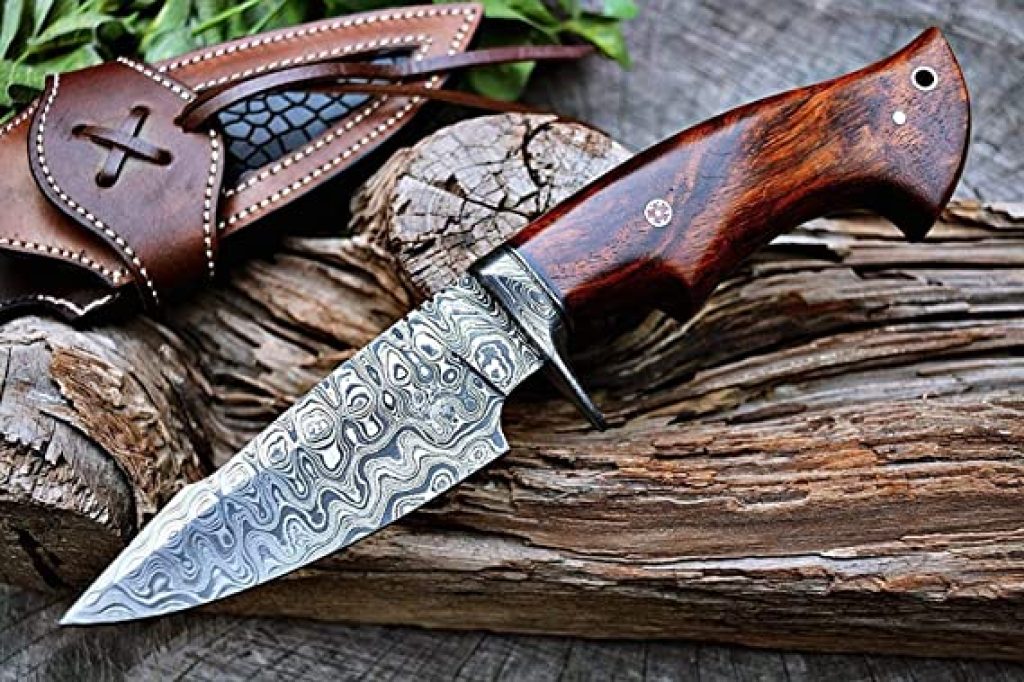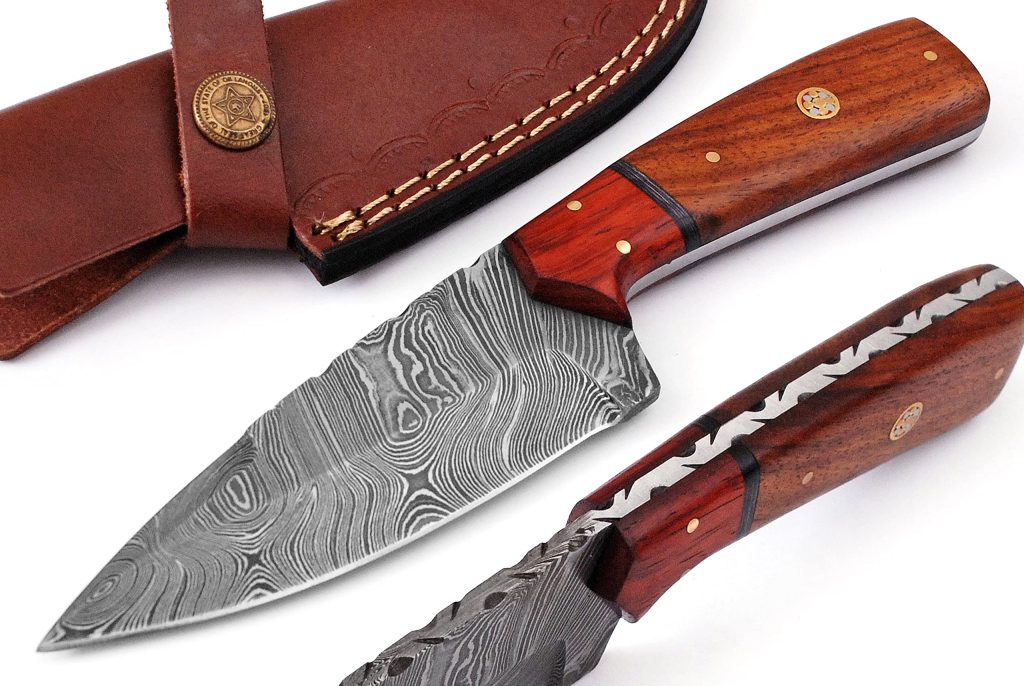Damascus knife is a high-quality tool that requires proper care and knowledge. It is also known as Damascus steel knives, made from a combination of metals resulting in an attractive blade pattern.
This type of knife is used for cutting food and other materials with great precision and strength. The lower carbon content in this type of steel allows it to be sharpened easily while maintaining its sharpness longer than many other types of knives.

What Is Damascus Steel
Damascus steel was originally developed in India and Persia, but the artisans of Damascus perfected it in the Middle Ages. It’s a pattern-welded steel formed from two or more metals that are folded together to create a single blade. The type of pattern on each blade depends on how many layers there are and how they’re folded. A Damascus knife is made from a high-carbon steel core and a softer outer layer of nickel or chromium. An example of the layer is:
- A layer with high carbon content (about 1%)
- A layer with medium carbon content (about 5%)
- And then another layer made up mostly of stainless steel or nickel-chrome alloyed steels mixed, so there’s some chromium mixed into the mixture too.
The result is an exceptionally strong blade with interesting patterns on its surface.
Why is it called the Damascus knife?

Damascus steel is a type of steel that originated in Damascus, Syria, and was first used to make swords. The name comes from Damascus in Syria, where Arab blacksmiths first produced it.
What to look for in a Damascus knife?
- Look for a knife with a good weight. It should feel heavy in your hand, but not too heavy. It might be cheap metal or plastic instead of real Damascus steel if it feels too light.
- Examine the blade for flaws and rust. A well-made knife will have a smooth edge on both sides of its cutting surface, called “full-tang.” If you can see any breaks or cracks along this surface, your knife may need to be better. Additionally, check that there are no chips in your blade; these would indicate poor craftsmanship or damage caused by improper storage over time (either way: bad news).
- Check out how sturdy each component feels before purchasing–especially if you plan on using this often! Please ensure no loose parts are inside (like springs), which could lead to dangerous accidents later.
How to care for a Damascus knife?
- Clean the blade with a soft cloth and warm water. If you must use soap, ensure it’s not a harsh detergent.
- Oil the blade of your knife regularly with cooking or mineral oil, keeping it from rusting and helping maintain its sharpness. Be sure to wipe off any excess oil after applying it, so it doesn’t get gummed up in your kitchen drawer or on other nearby utensils.
- Keep your knives sharpened by honing them regularly with an abrasive stone (like those used for sharpening scissors) or sharpening steel. These tools should come with any high-quality knife set worth buying.
- Store Damascus knives in their original boxes when not in use so they don’t get damaged by moisture or dust particles in storage areas like drawers and cabinets.
- Don’t use Damascus knives as hammers–this will damage their edges badly!
Recognizing a fake or counterfeit Damascus Knife
When you’re looking to buy a Damascus Knife, the first thing you should do is check the blade. It should be sharp and have no chips or cracks in it.
In addition, the pattern on the blade should be even and symmetrical around its entire length, with no gaps between lines or spaces between patterns. If you see any discolouration along your knife’s edge (which could indicate rust), this may mean that your item has been improperly stored or damaged over time.
Good Damascus Knives have handles made of wood or antler (deer horn). However, some Damascus knives have plastic grips instead. In that case, we recommend steering clear of them because they won’t last long when exposed to moisture like rainwater or sweat from handling knives frequently during cooking activities at home. You don’t want those chemicals to come into contact with food later on down the line, either! You also want something sturdy enough to use as leverage against another object, like a cutting board, while making dinner prep easier before washing dishes later tonight after work hours end.
Conclusion
Damascus knives are high-quality ones that need proper care and knowledge. They can be expensive, but if you know what to look for in a Damascus knife, then you should be able to find one that fits your needs.






